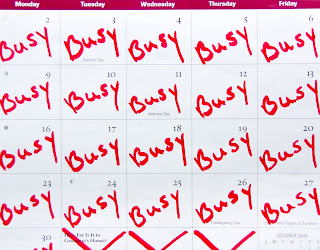Mother Earth
“Mistress Mary” the townspeople called her.
There were many rumors swarming the young, beautiful lady: How could she afford to live in a mansion all on her own? How could she afford gowns of fine silk despite the style being out of date? How could someone with her beauty be all alone in such a grand mansion? How could she be alone in the bleak, cold country of northern England? Many concluded it was family inheritance or she was a young widow of a wealthy man.
“She must be a mistress of some important politician or fellow,” some whispered behind their liver-spotted hands whenever she walked through town. “Her strange accent must be why they hide her all the way up here. There are carriages always going to and from the mansion at odd hours.”
Mistress Mary, quite contrary,
The townspeople could not figure out how the young lady had come to be in possession of the most lavish mansion on the outskirts of town without some aid: "Her father’s estate perhaps?" or "A dead husband’s fortune?"
The townspeople were also surprised no one had remarried her, if it was the latter.
Red, wavy hair framed a face with full, rosy cheeks. Full lips hid straight, white teeth that gleamed whenever she smiled, pale skin that glowed in sharp contrast to her deep, red hair. She had a small stature, with small fragile-looking hands clasped in front of her. Her eyes were what entranced the townspeople, nearly black irises with long, red eyelashes fanning her rosy cheeks.
The men would be entrapped in her gaze until she looked away.
The young women of the town envied her beauty - mainly for her ability to stop a man in his tracks with a single look. She was friendly to those who were friendly to her, and invited young ladies and mature women of town to her mansion to have tea in her garden.
Her garden also caused friendly envy from the ladies who attended tea gatherings. Lush and dense gardens such as Mary’s did not grow so far north. Women would ask for her secret; they would beg her to tell them how she kept her garden green and abundant.
“How does your garden grow?”
“With cockle-shells and silver bells,” she would tease. “The seed comes from my homeland in the highlands, and time and patience allows my garden to thrive.”
The ladies softly laughed though disappointed with her answer. Despite her friendliness and her tea gatherings, the rumors still continued to weave their way into every house and alleyway. Her ears were accustomed to such rumors, though she did not pay them any mind.
Let them talk. She will provide the tea, feminine companionship and with pretty maids all in a row she will keep them blind to her earthly deceit.
A mistress to the earth and night rather than to men.
Black eyes trap men while she whispers into their ears to entice their desires. Her voice calls to them in the night. The men come to her, they always come to find her in the garden. They always gladly walk into their deaths.
She welcomes them in her arms, and then she feeds them to mother earth.
They are slowly consumed - unaware until it is too late to scream. She watches the earth as it swallows men piece by piece.
Mary knows how to play the game of innocence. She knows how to play the companion to the young ladies who are married to men - men who can publicly condemn a woman’s life while some of their cruel wives whisper in their ears.
She has walked this earth for centuries; surviving the violence of humans has become second nature. She has seen her sisters burn at the stake because of cruel and jealous women – their screams haunt her in the silent night.
Her Mother had abandoned her garden many centuries ago. She left ashamed and full of sorrow as hatred slowly poisoned her creation.
As the earth finally finishes its fleshy meal, she smiles.
She will purify the earth, and it will become a garden once more.
Author's Note. The nursery rhyme "Mistress Mary" has religious and historical implications. The short rhyme is only four lines and can be found within the story above in italics. There are many theories about this rhyme, but the one I took influence from was about Mary, Queen of Scots. The garden represents her kingdom, cockle-shells represents her husband's unfaithfulness, the silver bells symbolizes the church, and the pretty maids are Mary's ladies-in-waiting. When I first read the rhyme's last line, I immediately thought of a horror theme. If my writing was too ambiguous: Mary is a witch in a town in Northern England and she has been around for a very long time. She is a very beautiful Scots women with red hair. In medieval times, red hair was a symbol for witches. She befriends the women because she knows that it could be dangerous not to since they hold sway over their husbands. During the witch trials, the theory is that men on the jury had wives who were jealous of or disliked certain individuals and had them prosecuted and/or executed as witches. My Mistress Mary befriends them because she has been around long enough to know creating companionship with these women is beneficial for her. When a man goes missing, there are no thoughts she could have been a part of the disappearance because of her small and weak-looking stature. The earth does eat the men which is the reason her garden is lush and thriving, and why she is still youthful.
Also, can anyone guess who Mother is?
Bibliography. "Mistress Mary" from The Nursery Rhyme Book by Andrew Lang. Web Source




